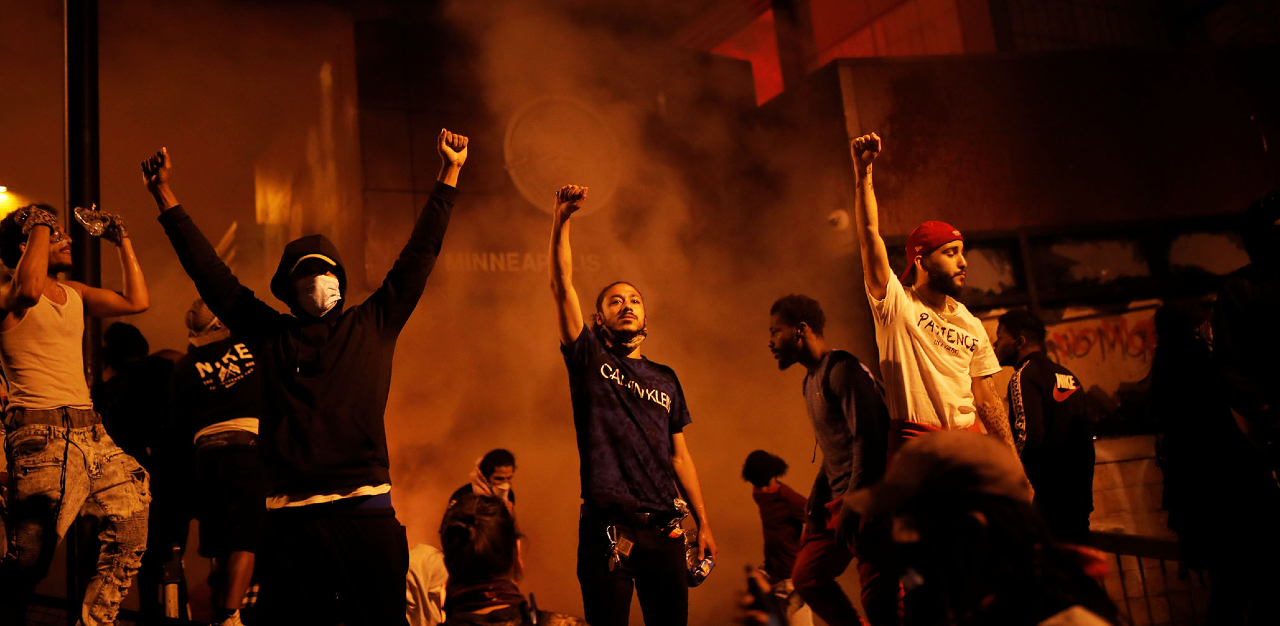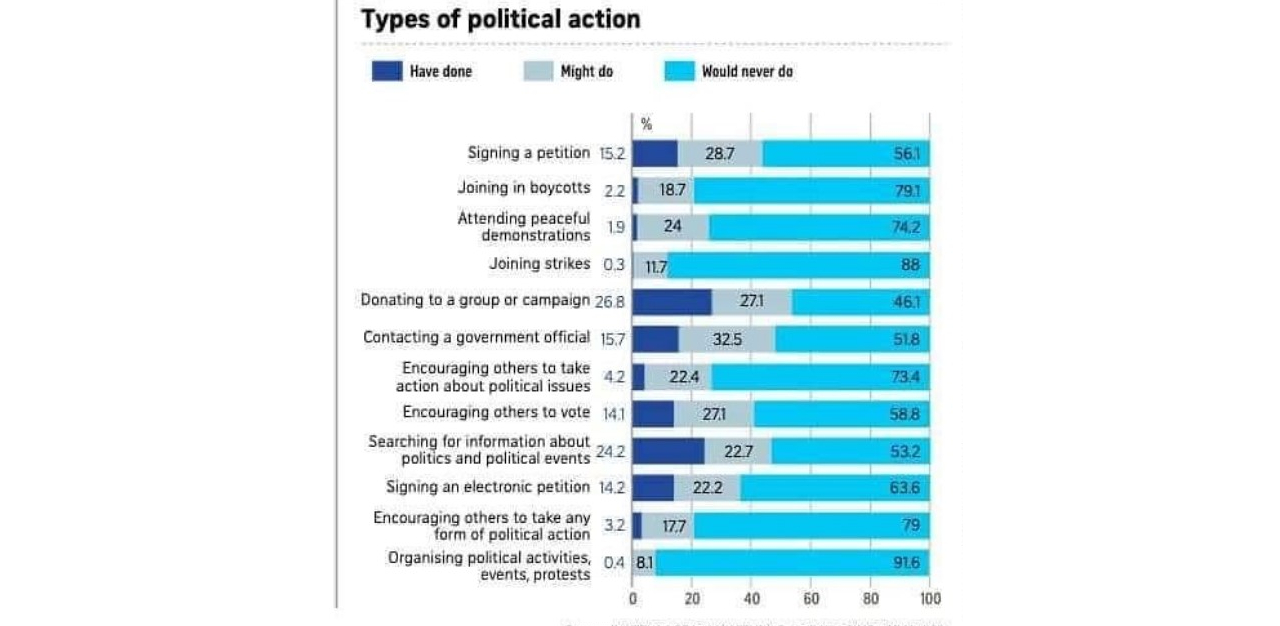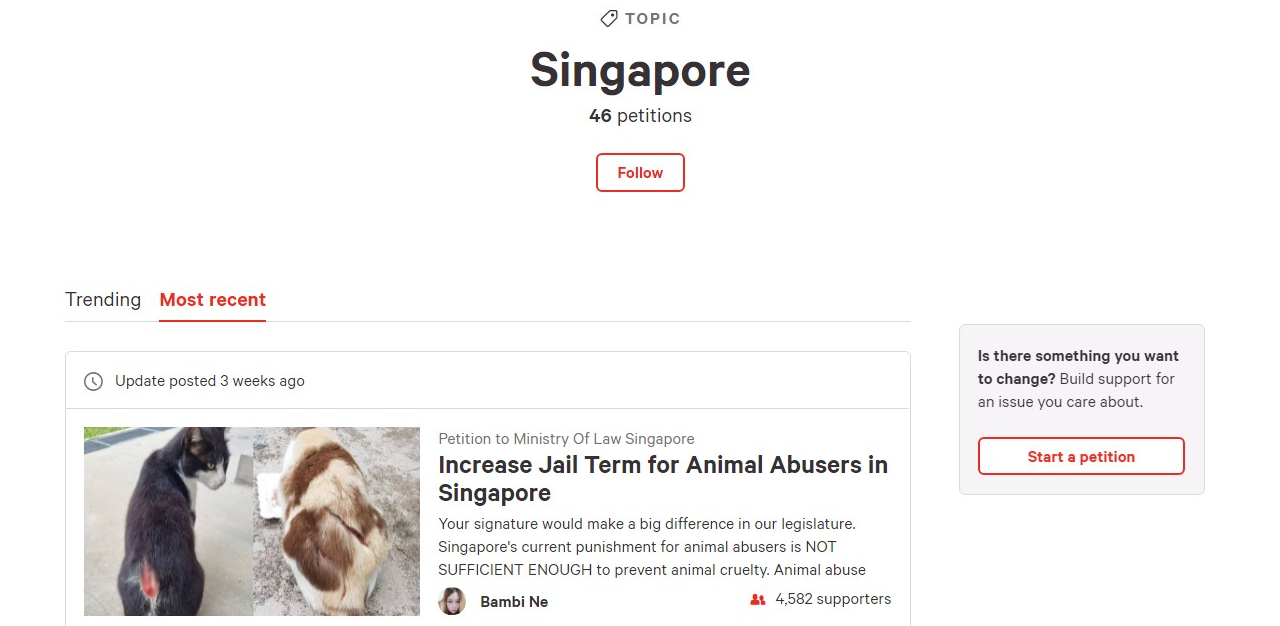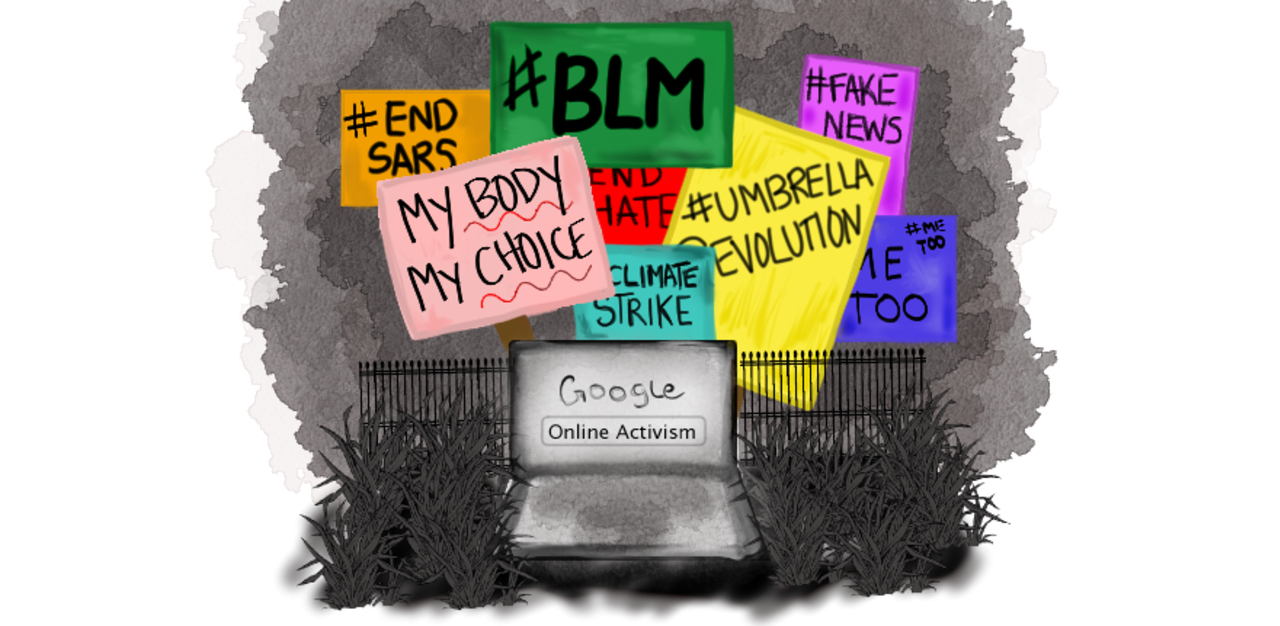The first protest took place in 1381 in Kent, a southwest country in England. Known as the Peasants’ Revolt, it was hailed as one of the ‘great revolts of medieval Europe’. Led by Wat Tyler, the dissenters marched from Kent and Essex to London in revolt against the poll tax. Tyler and hundreds were killed during this rebellion.

As for the first petition in history, research dates it to ancient Europe, involving the slaves who built the Pyramids. To date, the largest petition signed was the call for Justice for George Floyd in May 2020. Floyd was killed by former police officer Derek Chauvin in Minneapolis, earlier that month. By April 2021, the petition had amassed close to 20 million signatures. Chauvin was found guilty on three counts of murder on 20 April this year, and sentenced to 22.5 years in jail on 25 June.

Are online petitions the digital forms of physical protests and parades?
Loosely defined, petitions are a form of “formal request to an authority for redress of a grievance.” A search on Change.org shows nearly 50 petitions related to issues in Singapore, such as the request to keep a bus service and introduce a new route, and the call to increase the jail term of animal abusers in Singapore.

Various forms of political acts were also polled by the Institute of Policy Studies. In its recent survey of 2,012 respondents, Singaporeans seemed to prefer a more passive form of activism. Almost 27 per cent said that they had donated to a group or campaign, while some 24 per cent searched for information about politics and political events.
When it came to physical protests, only 2.2 per cent said they had joined a boycott, while 1.8 per cent had attended a peaceful demonstration. This compares to 15.2 per cent and 14.2 per cent who said that they had signed a petition, or an electronic petition, respectively.
It is reasonable to liken online petitions to public protests since people’s lives have mostly become digitalised, especially during the pandemic. Without losing the essence of what activism is, it would also be fair to say that they hold similar traits.

Carol Soon, Senior Research Fellow at the Institute of Policy Studies, classifies digital petitions as “one of the many tools in the repertoire of collective action, alongside sit-ins, picketing, protests and parades.”
Sharing these sentiments is Associate Professor Tan Ern Ser, from the Department of Sociology at National University of Singapore (NUS). He thinks that digital petitions also have “a strong message, with a demand which the organisers hope would resonate with others in the community, and a visible show of strength through the number of participants they can mobilise.”
But Associate Professor of Law Eugene Tan from the Singapore Management University (SMU), argues that while online petitions might be likened to physical revolts, they “often require less commitment in terms of time, energy, and presence” than for a physical protest, or a demonstration.
“It is often much easier to sign on to a petition than to expose oneself to the vagaries of protest, parade or demonstration,” he adds.
Slacktivism vs clicktivism vs activism
So how should different forms of socio-political actions be compared and measured? Does one examine execution, purpose, costs, or whether the action has accomplished what it set out to achieve?
While they are all expressions and demonstrations of citizenry and civil participation, the yardsticks seem to be how much the action (or inaction) has produced socio-political engagement, conscious awakening and societal changes.
Online petitions have been termed as ‘slacktivism’, and more recently, ‘clicktivism’ to distance this form of civic action from authentic and ‘active’ activism.
‘Slacktivism’ has been defined by the United Nations as supporting ‘a cause by performing simple measures’ that are not ‘truly engaged or devoted to making a change’.

Malcolm Gladwell, journalist and author, argued why in a New Yorker article titled Small change: Why the revolution will not be tweeted. He wrote that ‘slacktivism’ does minimal in creating tangible change and is the social media form of in-person activism. Part of his criticism of slacktivism is that too much value and prominence have been afforded to social media.
Former United States President Barack Obama said that “social media activism, mostly woke culture, was no substitute for community organising or protest in the physical world”. At the Obama Foundation’s annual summit in Chicago in October 2019, he noted that in order to “provoke change”, it seemed that someone had “to be as judgmental as possible about other people”. But Mr Obama disagreed with this assertion: “That’s not activism. That’s not bringing about change. If all you’re doing is casting stones, you’re probably not going to get that far.”

‘Clicktivism’ goes a step further in its critique of online activism. Those who question its effectiveness argue that going beyond the ‘shares’, ‘likes’ and ‘tags’, ‘clicktivism’ barely engages in civic issues, and fails to bring about concrete changes.
The difference between these various modes of civic action lies in purpose and agenda. Association Professor Tan of SMU says that an online petition is “more low-key [with] the content being more important and persuasion being [the] driver”, whereas a “physical protest is more headline-grabbing, visually more impactful, and packs more emotions and commitment.”
He adds that “petitions can have a viral effect and they are virile too.”
The costs and benefits between protest and petition are also metrics to consider.
“Physical protests are illegal in some places, which means the costs (in terms of being arrested) are high,” notes Dr Tan from NUS, “unless the intent is to benefit from the optics of being arrested.”
SMU’s Associate Law Professor Tan, however, recognises that “in some situations, online petitions could leave a digital footprint and, in some regimes, that could result in the petitioners being traced and subjected to the law.”
In Dr Tan’s professional opinion, he “[believes] the balance is tipped in favour of digital protests.” He says: “It boils down to the costs and benefits of each approach; the digital form is easier to organise and mobilise.”
On a flip side, Dr Soon says that online petitions may be “exploited by some to create a false impression of mass discord and unhappiness, for instance through astroturfing.” She explains that this would pose “greater challenges to policymakers when they interpret how accurately online petitions reflect public sentiments on hot button issues.”
Is Singapore ripe for online movements?
In a country like Singapore, organising or participating in a pubic assembly without a police permit is an offence. It carries fines of up to S$10,000 (US$7,380) for organising protests in prohibited areas and a jail time of six months. The rate at which permits are granted, and the permitted participants per assembly, also influence whether a society is more predisposed to digital or physical collective actions, such as online petitions.
Dr Tan says that “historical and institutional factors enabling [or] deterring physical protests [play a role].” The “show of force in public and the optics it presents” is something that governments have to take into account.

Since online petitions “lower the barriers to entry of participation,” says Dr Soon, Singaporeans who want to be part of change-making “can now do so with greater ease and convenience.”
She explains that online petitions “reduce the cost of participation, both in terms of the time spent and the potential risks involved (e.g., persecution by police and loss of life in dangerous situations).”
But even if restrictions on rallies and protests were lifted in Singapore, Dr Tan says that other factors will determine whether people will take to the streets: “The people mobilised to become participants are likely to be more committed,” he says, adding deciding on the mode of civic action would require weighing the impact of a public protest to gain traction for a particular issue.
Associate Professor Tan concurs that if a society embodies a “petitionary culture”, then petitions are “more conducive [in] being given the appropriate attention.”
Elaborating, he says, “In a system of government that frowns upon protest but is nevertheless willing to hear out people’s concerns, a well-written petition signed on to by respected members of the community can be potentially a viable way of drawing attention to the issues and concerns.”
Will crises nurture a more dynamic environment for petitions in Singapore?
Given the limitations of movement due to the pandemic, Dr Tan notes that the pace of digital adoption has increased. But these conditions of lockdown do not necessarily lead to a more perfervid online petition environment.

He says that a healthy digital dynamism would necessarily drive an “effective way of interest articulation”. But recognises that there are potential pitfalls, like when the online space becomes a platform “for fomenting misinformation, disinformation, and mischief,” more crucially during a time when panic and anxiety are rife.
In a climate of crises, Dr Tan warns that online petitions can “be divisive or polarising and may be the breeding ground for evidence-free, alternative-reality conspiracy theories.”
On the other hand, an online platform for civic movement could be a safe and cathartic avenue to vent concerns and dissatisfaction under a stressful environment, says Associate Professor Tan: “It can also help inform people of issues and for people to show support for those issues.”.
He “regards petitions as having a place and a tool for civil society and individuals to use,” because “when used appropriately, it is a platform to engage the authorities and the community at large.”
Join the conversations on TheHomeGround Asia’s Facebook and Instagram, and get the latest updates via Telegram.



























